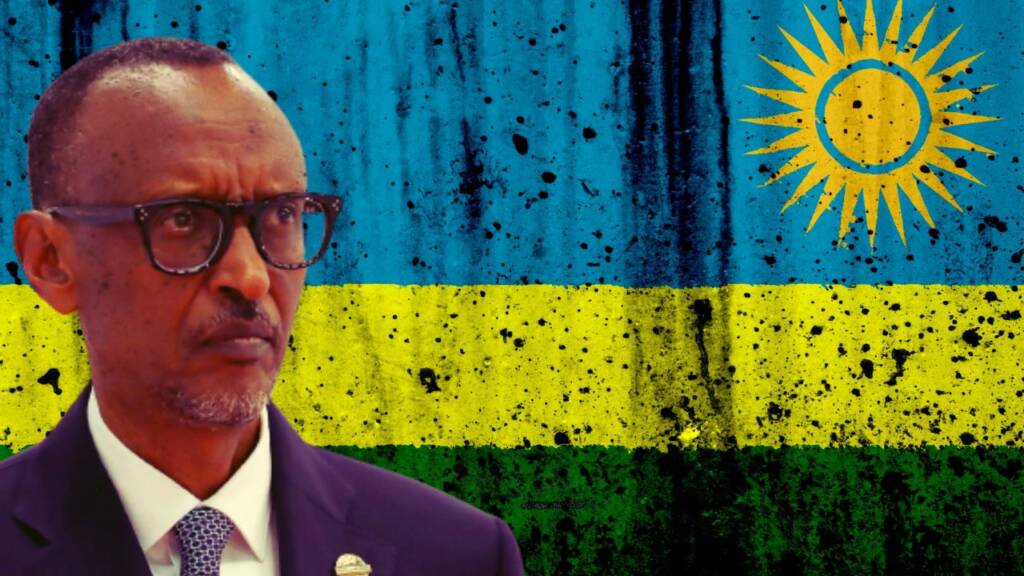Rwanda is a landlocked country in Central Africa bordered by Uganda, Tanzania, Burundi, and the Democratic Republic of Congo. It is popularly referred as the “land of a thousand hills”. Rwanda under the leadership of Paul Kagame is on its ambitious quest to become the Singapore of Africa. However, at the same time, it is struggling to recover from the ethnic strife and the genocide in the mid-1990s. Today, when we hear about Rwanda, only two things that come to our minds, are the Genocide in the 1990s and the M23 crisis. The M23 crisis has been a blot on Rwanda on the international stage and also the biggest impediment to its progress.
Rwanda: Genocide in 1990s
In 1897, Germany colonized Rwanda followed by Belgium which took control in 1916 during World War 1. Both European powers ruled through the Rwandan king and perpetuated a pro-Tutsi policy.
To this, the Hutu population revolted in 1959 and massacred numerous Tutsi and ultimately established an independent, Hutu dominated republic in 1962 led by President Grégoire Kayibanda, when many Tutsis left the country. In 1973, President Kayibanda was ousted in a military coup led by Juvenal Habyarimana who retained the pro-Hutu policy.
In 1990, the Tutsi-led Rwandan Patriotic Front (RPF) launched a civil war and its forces invaded Rwanda from Uganda. Furthermore, in 1994, things took an ugly turn when Habyarimana and the Burundian president Cyprien Ntaryamira were killed after their plane was shot down over Kigali.
In response to the offensive launched by the RPF, extremist Hutu militia and the elements of the Rwandan military began the systematic massacre of Tutsis. Within 100 days around 800,000 Tutsis and moderate Hutus were killed by dominant Hutu forces. Since then, the country has struggled with its legacy of ethnic tension between the Tutsi minority and the majority Hutus.
The current Rwandan President Paul Kagame has ruled the country as the President since 2000. He also faces criticism at home and abroad over his political and human rights record. In 2006, a French judge also issued an international arrest warrant for President Kagame alleging he was involved in bringing down Habyarimana’s plane.
M23 crisis
Apart from the genocide, Rwanda is also accused of fueling a rebellion in the Democratic Republic of Congo by training rebel groups. Although Rwanda has denied the charges.
The M23 is also known as the Congolese Revolutionary Army. It is a rebel military group that is formed by ethnic Tutsi. The rebellion group was formed in 2012 and is an offspring of the National Congress for the Defence of the People, better known by its French acronym CNDP, a rebel group that fought the DRC government between 2006 and 2009.
Both these groups claim that the Congolese Tutsi and other ethnic communities in the north and south Kivu are discriminated against and they are considered of Rwandan descent and also commonly referred to as “Rwandophones”. In addition, the fighting between DRC’s national army and the rebel group M23 has displaced thousands of people.
Read More: Is an all-out war imminent between DRC and Rwanda?
M23 – Rwanda – US
We have previously told our readers that as part of the US’ divisive agenda in the DRC, it funded the M23 terror group to create instability. M23 is the major reason for tensions between DRC and Rwanda. The US-Rwanda-M23 nexus created instability and looted DRC’s mineral resources.
However, soon the tables were turned against it when regional alliances were formed by African countries to eliminate M23. It would not be wrong to say that the US has thrown Rwanda under the bus and the latter’s image on the international stage has been tainted. Apart from the US, the European Union and the UN have asked Rwanda to stop supporting the M23.
Recently, the UN also confirmed that there is “substantial evidence” of direct interventions by the Rwandan defense forces in DRC.
Considering the scenario, it indicates that there is little support for Paul Kagame on the international stage and it is time that he realizes that supporting M23 will lead him nowhere. It has become a termite which is eating up its reputation. Today as there are growing calls for greater African Unity and economic integration, Rwanda should also join the efforts and support regional peace and security initiatives.
Read More: For peace to prevail, Rwanda needs to accept its support to M23
Therefore, for its own economic progress and stability, rather than supporting the M23 it must take steps to build its economy and meaningful regional ties with its neighbors and must acknowledge that M23 is a snake in its backyard that will not bite just its neighbors but also Rwanda.
https://www.youtube.com/watch?v=k-wseCkhkAU
